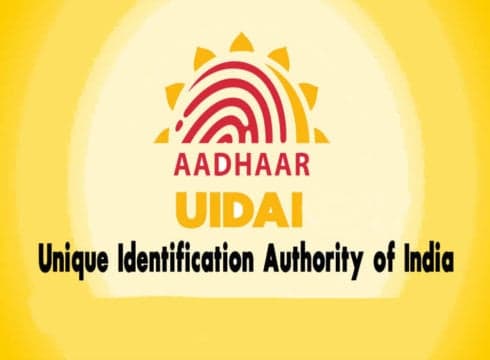In What Took Many By Surprise, UIDAI Claimed That Google And Smart Card Lobby Didn’t Want Aadhaar To Succeed
Inc42 Daily Brief
Stay Ahead With Daily News & Analysis on India’s Tech & Startup Economy
The statutory authority on Aadhaar, Unique Identity Authority of India (UIDAI), levelled charges against the US search engine giant Google and the smart cards lobby, alleging that they didn’t want Aadhaar to succeed because if the UID is able to become a foolproof way to authenticate identity, they will run out of business.
The court, however, termed the arguments, presented by senior advocate Rakesh Dwivedi, appearing for UIDAI on April 17, “inconclusive” and the matter is currently being heard. According to the report, Rakesh Dwivedi told the CJI-headed Constitution bench that a campaign had been unleashed suggesting that Aadhaar should’ve been based on smart cards, a Europe-based commercial venture.
A smart card is essentially a pocket-sized card, generally made of plastic and is embedded with integrated circuits, also known as microchips. These cards are used for security purposes for authentication, identification, data storage and application processing. They are quite popular in Europe and widely used in sectors such as the BFSI, government, transportation, healthcare and defence.
According to the report, some of the petitioners, who have challenged the validity of the Aadhaar Act, have suggested that instead of having Aadhaar authentication sourced from UIDAI, which stores huge metadata of Indian citizens, it would be better to condense whatever data was needed for authentication into a smart card, like credit or debit cards, for authentication by swiping.
Cambridge Analytica?
The Supreme Court bench again asked Dwivedi with reference to the data theft in the Cambridge Analytica- Facebook fiasco about Aadhaar data being susceptible to being used to sway elections. “The problem is symptomatic and we do not live in isolation. We cannot have a blinkered approach as when we write the judgment on this, it could govern citizens for generations,” it said.
In response, Dwivedi requested that this episode should not be brought into this debate. The senior advocate said that Aadhaar does not use artificial intelligence and that a phobia is being created around the Aadhaar metadata, describing it is a like an atom bomb which can go off any time. “But the truth is it is secured in the best possible way. It is not connected to the Internet to allow online stealing of data. The data cannot be analysed by anyone.”
The recent remarks mark another eye-raising moment in what has been a hugely contested debate regarding privacy and a possible overreach of the state. Google will not be too pleased with its name entering the debate especially if that conversation mentions the words Facebook, privacy and data.
While the SC has clearly drawn a line between where Aadhaar must be linked and where it should be voluntary, the Indian government along with the UIDAI has not implemented the decision with the same enthusiasm it showed while linking.
A lot is resting on this case and it could be a watershed moment in how we as a country perceive our privacy and integrity of our data.
{{#name}}{{name}}{{/name}}{{^name}}-{{/name}}
{{#description}}{{description}}...{{/description}}{{^description}}-{{/description}}
Note: We at Inc42 take our ethics very seriously. More information about it can be found here.


